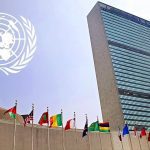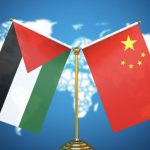Sinai has always held a significance place in the minds and hearts of Egyptians, and its land has seen many battles that it deservedly won. Since 2014, the political leadership has created a detailed development strategy for Sinai that started with terrorism prevention, community development initiatives for residents, infrastructure preparation, and the creation of national companies to attract investment.
Sinai has many advantages that make it an attractive location for investment in a wide variety of industries, including agriculture, industry, tourism, energy, mining, trade, etc. The current phase is characterized by the ongoing implementation of the national strategy for the integrated development of the Sinai Peninsula, which necessitates the cooperation of all concerned state agencies, as well as the participation of the private sector, in order to drive development forward.
The National Strategy for Integrated Development of Sinai
Since its liberation, Sinai has become the focus of the state’s development plan. Aiming to increase agricultural area and agricultural production, redistribute the population and settle them in the Egyptian desert, connect Sinai to the eastern Delta region, and make it a natural extension of the valley, the National Project for the Development of Sinai was approved by the Egyptian Cabinet in October 1994 and has since been in the process of being implemented. In 2012, the Prime Minister issued Decree Law No. 14 of 2012 on the Integrated Development of the Sinai Peninsula, and the National Agency for the Development of the Sinai Peninsula was established as a Cabinet-affiliated economic authority to replace the National Project for the Development of Sinai, with the goal of achieving real development on the ground. President Abdel-Fattah Al-Sisi declared the Sinai urban community he had planned to build complete on 7 March 2016. On March 8, it was announced that a new company, the Sinai National Investment Company, would be established as a profit-and-development-focused investment firm. In an effort to raise capital and broaden the company’s ownership base, the company’s shares were made available for public subscription in November 2016. Three main axes were included in the state’s comprehensive development plan for Sinai: raising the standard of basic services, integrating urban development, fostering economic growth, and luring investments. The three axes are interdependent in that raising the quality of services makes it easier to draw in residents and achieve urban development, which in turn makes it easier to draw in investments by enlarging the market and raising demand.
Since 2014, over EGP 600 billion has been invested in Sinai’s development projects across numerous fields, including education, healthcare, infrastructure, energy, and sanitation.
As part of the land link projects, seven floating bridges were built over the Suez Canal, five tunnels were dug on either side of the canal, a total of five airports were built, namely the Bardawil International Airport, Taba Airport, Sharm El-Sheikh Airport, El-Tor Airport, and St. Catherine International Airport, five sea and dry ports and their logistic areas were established, namely East Port Said Port, El-Qantara, Al-Arish Port, Taba Land Port, and Nuweiba Port, and interconnected roads were developed.
Regarding the development clusters of the new cities, there were approximately 17 development clusters, 12,000 social housing units, and 49,000 housing units in four new urban cities.
Concerning projects to improve basic services for citizens, 203 projects have been established for pre-university education, in addition to the establishment of eight universities, the establishment and development of 50 hospitals and health centers, and the establishment of 141 projects for youth and sports.
In addition, 674,000 feddans of land were reclaimed for agricultural use, water was piped to the Sinai Peninsula, fisheries were expanded, 5 industrial zones were established, and about EGP 2.1 billion was loaned to small and micro projects in fields that represent a comparative advantage for the region.
Through the creation of new jobs and the expansion of existing ones, the provision of a wide range of health, educational, cultural, and sporting services, the achievement of economic empowerment for citizens, and the consequent improvement in the standard of living for citizens and the people of Sinai, these projects have helped to improve the economic and social level in Sinai.
Sinai’s Development Strategy: A Long-Term Perspective
More public and private investments are necessary to accelerate the pace of development following the successful implementation of development projects and comprehensive development in Sinai, which ran from 2014 to 2022. In light of the uniqueness of the situation in Sinai, which is of paramount strategic importance to the country and a matter of national security in and of itself, it is crucial that the security plan be implemented in full to guarantee the safety of the area, improve its security, and make it more appealing to residents and potential investors.
To make up for the time and extra measures needed to meet the security requirements of the region, additional incentives may need to be added to the economic legislation related to the development of Sinai. In addition, expanding the establishment of all service agencies that citizens need and qualifying them to lead the development process is necessary to increase the population’s attraction and promote urban development. There should be an expansion of the establishment of advanced schools, hospitals, cultural, sports, and religious centers, as well as training and rehabilitation centers, for the development of advanced and modern industries alongside the industries that characterize Sinai society, such as handcrafted environmental products that contribute to the region’s unique mental image.
Sinai is defined by its many productive industries, which provide a solid foundation for future economic growth. In terms of the industrial sector, Sinai has a wealth of natural resources that can be used to build an industrial base, including metallurgical industries, quarries, fertilizers, building materials, marble, chemical industries, food industries, fisheries, home furnishings, palm leaf products, and others. With the state’s interest in localizing the local industry, it is possible to zero in on sectors where raw materials are readily available for production, sectors from which the state imports significant amounts, and sectors essential for export.
Regarding the agricultural industry, Sinai has access to agricultural lands and is known for producing some agricultural crops like dates, olives, and figs. With a focus on developing agricultural techniques and expanding projects to provide irrigation sources, productivity can be increased, and it can serve as a foundation for a number of distinguished food industries.
In terms of the tourism industry, Sinai has a lot of potential to draw in a wide variety of visitors. In addition to its appeal for beach and recreational tourism, it has its own appeal for religious tourism, especially in light of the state’s interest in reviving the route of the Holy Family’s journey.
Aside from its appeal for medical tourism, adventure tourism, and conference tourism, it is distinguished by areas with a rich history and archaeological sites, which attract archaeological tourism. In addition to its allure for medical tourists, adventure travelers, and conference goers, it also stands out for the archaeological tourism that can be enjoyed there thanks to its preserved historical sites. In general, the tourism industry is one of the pillars of economic growth. It is a labor-intensive industry that brings in foreign exchange and helps change perceptions of the country abroad, and it is intertwined with and has multiple forward and backward links with a wide range of economic sectors. In this regard, it is advised that tourism be promoted through the implementation of unique tourism initiatives and the running of direct flights at reasonable rates.
Regarding the energy industry, Sinai benefits from the accessibility of renewable energy sources. With the state’s eagerness to expand clean energy projects, a number of clean energy and electricity projects, such as the Abu Ghradeq solar power plant, projects for electric energy transmission and insurance, and the Al-Arish power station, have been established in Sinai, on the Gulf of Suez, and in Canal cities. These projects are among those that attract the private sector but require substantial funding. These projects have a significant environmental benefit in addition to their economic benefit, so more incentives must be offered for them.
Regarding the trade sector, the Sinai Peninsula region’s enviable location and the state’s growth in establishing ports, airports, and land linkage projects pave the way for exporting its premium goods both domestically and abroad.
In short, the government has incorporated the Sinai Peninsula region into its plans for national development, and numerous national projects as well as projects in the productive and service sectors have been implemented in Sinai, making it one of the most significant areas of Egypt that draws people and investments, especially in light of the state’s victory in its war against terrorism. A new era of development and growth will start with the suggestion to offer Sinai economic and social incentives to increase the private sector’s involvement in Sinai’s development process.













